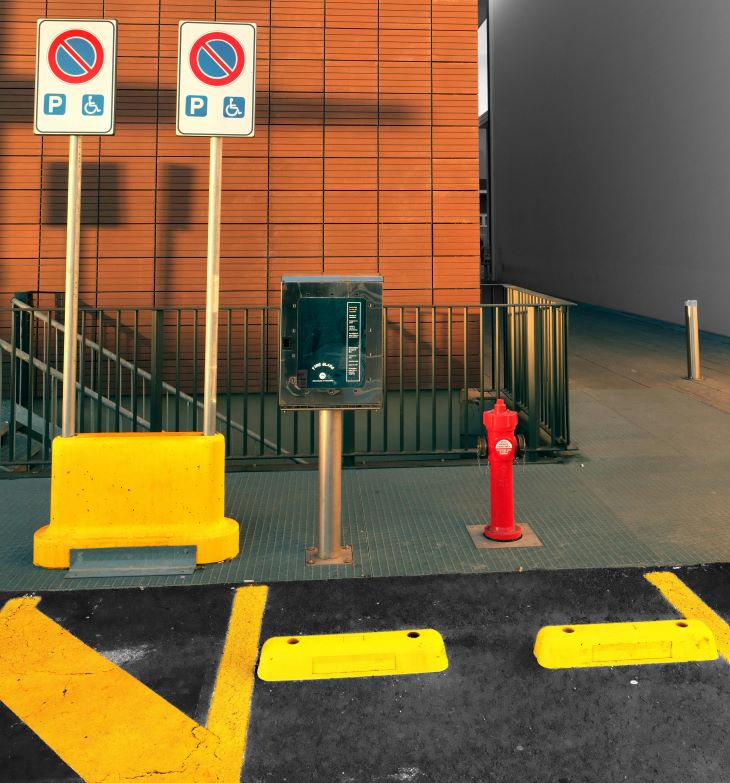Handicap parking permits, often referred to as disabled parking permits or placards, are essential tools that facilitate accessibility for individuals with disabilities. These permits allow holders to park in designated spaces close to entrances, ensuring they can access necessary services and facilities conveniently.
Accessibility for individuals with disabilities is a right that promotes independence, facilitates daily activities, and enhances overall quality of life. Accessible parking spaces provided through handicap permits reduce barriers and ensure equal participation in societal activities.
In this article, we provide first-time handicap parking permit application tips. It includes a comprehensive overview of the types of permits available, eligibility criteria, application procedures, common pitfalls to avoid, and tips for a successful application. Additionally, it covers what to do after receiving approval, including permit regulations and renewal processes.
Understanding Handicap Parking Permits
Types of Handicap Parking Permits
Handicap parking permits are typically categorized into temporary and permanent types, each serving specific mobility needs. Temporary permits are issued for short-term disabilities or medical conditions that affect mobility temporarily, such as injuries or surgeries requiring recovery periods. They often take the form of placards that can be hung from the rear-view mirror of a vehicle. Permanent permits, on the other hand, cater to long-term disabilities that significantly impair mobility continuously. These permits may include specialized license plates affixed to the vehicle, making them easily identifiable for parking purposes.
The eligibility and issuance of these permits vary by jurisdiction, with criteria often requiring medical certification of the disability. Understanding the distinction between temporary and permanent permits is crucial for applicants seeking to access designated parking spaces conveniently located near building entrances or facilities, thereby promoting independence and ensuring equal participation in community activities.
Eligibility Criteria
Eligibility criteria for handicap parking permits vary widely among states, but they typically mandate a thorough medical certification demonstrating a disability that substantially impedes mobility. Qualifying disabilities encompass a broad spectrum, ranging from physical impairments affecting walking abilities to conditions impacting lung function or necessitating the use of mobility aids such as wheelchairs or walkers. In some jurisdictions, psychological disabilities that severely limit mobility may also qualify individuals for these permits.
The medical certification process often involves documentation from licensed healthcare providers, detailing the nature and extent of the disability and its direct implications on the applicant’s ability to move and function independently. These criteria ensure that handicapped parking permits are allocated to those with genuine and significant mobility challenges. It enables them to access essential services and facilities with greater ease and convenience.
Understanding these diverse eligibility standards is crucial for prospective applicants navigating the application process across different regions, ensuring compliance and fair distribution of accessible parking privileges.
Benefits of Having a Handicap Parking Permit
The primary benefit of a handicapped parking permit is convenient access to designated parking spaces located closer to building entrances or facilities. This proximity reduces physical exertion and minimizes barriers for individuals with disabilities, thereby promoting independence and participation in community life.
Application Process
Gathering Necessary Documentation
Applicants typically need to gather medical documentation verifying their disability. This may include statements from physicians or healthcare providers detailing the nature and extent of the disability.
Completing the Application Form
Completing the application form accurately is crucial. Information required often includes personal details, disability specifics, and vehicle information (if applicable).
Submission Options (Online, Mail, In-Person)
Most jurisdictions offer multiple submission methods such as online applications, mail-in forms, or in-person submissions at local government offices. Each method has its requirements and processing times.
Application Fees and Waivers
Some regions charge a fee for issuing handicapped parking permits. However, waivers or reductions may apply in certain circumstances, such as for individuals with limited financial means.

First-time Handicap Parking Permit Application Tips: Avoid These Mistakes
Incomplete or Inaccurate Information
Incomplete applications or inaccuracies in the provided information can delay processing or result in denial of the permit. It’s crucial to carefully review all sections of the application before submission.
Failure to Provide Adequate Medical Documentation
Insufficient or outdated medical documentation is a common reason for application rejection. Ensure that medical statements clearly outline the disabling condition and its impact on mobility.
Missing Deadlines
Missing application deadlines can lead to unnecessary delays. Applicants should familiarize themselves with specific deadlines and submission requirements to avoid complications.
Tips for a Smooth Application Process
Plan Ahead
Start the application process early to allow ample time for gathering documentation and completing the form. Early planning minimizes stress and reduces the likelihood of missing deadlines.
Seek Assistance if Needed
If unsure about any aspect of the application process, seek assistance from healthcare providers, disability advocates, or local government offices specializing in disability services.
Double-Check Everything Before Submission
Before submitting the application, double-check all information for accuracy and completeness. Pay attention to details such as signatures, dates, and supporting documentation.
Legal and Ethical Use of Permits
Understanding the ethical and legal implications of using handicapped parking permits is crucial. Misuse or fraudulent use of permits can result in fines or penalties. It’s important to respect designated parking spaces reserved for individuals with disabilities to ensure fairness and accessibility for all.
Resources for Further Assistance
For additional guidance, applicants can visit local government websites, contact disability advocacy organizations, or consult helplines specializing in disability services. You can also use our Dr. Handicap platform to submit your application online, as we serve as intermediaries between you and your state’s DMV.
Understanding Permit Regulations
Familiarize yourself with local regulations regarding the use of handicap parking permits, including where and when they are valid, and who may operate the vehicle displaying the permit.
Proper Display of the Permit
Ensure the permit is displayed appropriately when parking in designated handicap spaces. Improper display may result in fines or penalties.
Renewal Procedures and Timelines
Understand the renewal process and timelines to ensure continuous access to accessible parking spaces. Renewals typically require updated medical documentation to verify ongoing eligibility.
Tips for First-Time Applicants of Handicap Parking Permits
We hope these first-time handicap parking permit application tips help in the application process. Obtaining a handicapped parking permit involves understanding eligibility criteria, gathering necessary documentation, completing the application accurately, and adhering to submission deadlines. For individuals considering applying for a handicapped parking permit, remember that accessible parking enhances independence and improves quality of life. Accessible parking plays a vital role in creating inclusive communities where individuals with disabilities can participate fully and equally in society.
In conclusion, navigating the process of obtaining a handicapped parking permit requires careful preparation, attention to detail, and adherence to specific guidelines. By following the tips and insights provided in this article, first-time applicants can streamline their application experience and ensure access to the resources they need for a more accessible lifestyle.
Featured image by Thought Catalog on Unsplash.



